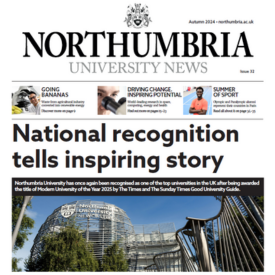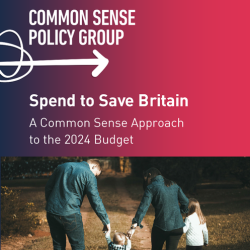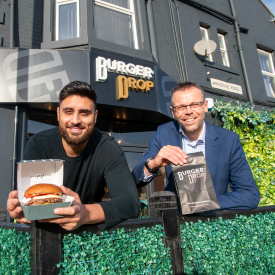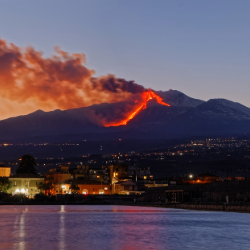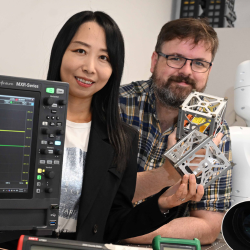-
Study
-
Undergraduate
- Search for a Course
- Undergraduate Open Day & Events
- Application Guides
- Northumbria University UCAS Exhibitions
- Foundation Years
- Undergraduate Fees & Funding
- School & College Outreach
- Continuing Professional Development
-
Postgraduate
- Postgraduate Study Degree
- Postgraduate Research Degrees
- Postgraduate Open Days and Events
- Postgraduate Fees & Funding
- Flexible Learning
- Thinking about a Masters?
- Continuing Professional Development
- Change Direction
-
Student Life
- The Hub - Student Blog
- Accommodation
- Life in Newcastle
- Support for Students
- Careers
- Information for Parents
- Students' Union
- Northumbria Sport
- Be Part of It
-
-
International
International
Northumbria’s global footprint touches every continent across the world, through our global partnerships across 17 institutions in 10 countries, to our 277,000 strong alumni community and 150 recruitment partners – we prepare our students for the challenges of tomorrow. Discover more about how to join Northumbria’s global family or our partnerships.
View our Global Footprint-
Applying to Northumbria
- European Union
- Our London Campus
- Northumbria Pathway
- International Events
- Entry Requirements and Country Representatives
- Regional Offices
-
Northumbria Language Centre
- Faculty Requirements
- Acceptable English Requirements
- Pre-sessional English Language and Study Skills
- Academic Language Skills Programmes (ALS)
-
International Fees, Funding & Scholarships
- International Undergraduate Fees
- International Undergraduate Funding
- International Masters Fees
- International Masters Funding
- International Postgraduate Research Fees
- International Postgraduate Research Funding
- International Money Matters
-
Life at Northumbria
- International student support
- Careers
-
International Mobility
- Current Northumbria Students
- Incoming Exchange Students
-
-
Business
Business
The world is changing faster than ever before. The future is there to be won by organisations who find ways to turn today's possibilities into tomorrows competitive edge. In a connected world, collaboration can be the key to success.
More on our Business Services -
Research
Research
Northumbria is a research-rich, business-focused, professional university with a global reputation for academic quality. We conduct ground-breaking research that is responsive to the science & technology, health & well being, economic and social and arts & cultural needs for the communities
Discover more about our Research -
About Us
-
About Northumbria
- Our Strategy
- Our Staff
- Place and Partnerships
- Student Profiles
- Alumni Profiles
- Leadership & Governance
- Academic Departments
- University Services
- History of Northumbria
- Contact us
- Online Shop
-
-
Alumni
Alumni
Northumbria University is renowned for the calibre of its business-ready graduates. Our alumni network has over 244,000 graduates based in 178 countries worldwide in a range of sectors, our alumni are making a real impact on the world.
Our Alumni - Work For Us
What will I learn on this module?
You will learn about narrative and storytelling in film and TV documentaries. This will include learning about the history, theory and practice of existing influential documentaries, developing your skills in identifying a strong factual storyline, and then learning how to pitch, plan, and produce a short documentary film. You will also learn how to reflect critically on your own film and those of others. The module includes sessions on: the key elements of narrative documentary, observational filming techniques, establishing the documentary idea and creating a successful proposal or pitch, building a relationship with your contributor and planning a successful shoot, shooting script development and scheduling a creative documentary – and the blurred line with fiction, critiquing a documentary and writing a reflective commentary, editing for story and truth, and tracking and recording your own insights and learning.
How will I learn on this module?
The module group is set up as a film-making community that works together to support learning and to prepare you for professional working practices.
n lectures, the module tutor will introduce you to key concepts, theories and practices of documentary film-making. Timetabled screenings give you the chance to watch influential documentary films, which will feed into discussion in seminars about specific techniques used, and help you to develop your own critical abilities as well as your film-making skills. In seminars, you work in smaller groups, which provides a greater opportunity to discuss concepts introduced in lectures at a deeper level, but also to discuss progress with your group productions and individual learning logs. Technical workshops develop your camera, sound and editing skills, while the e-learning portal enables you to share your work with other students and receive comments online. In between sessions, you may be set independent tasks, including reading around the subject of documentary, tasks which keep your production on course, and keeping a learning log up to date. The assessment gives you the experience of making a film, and is reinforced through the process of writing critically about your film, reflecting on its success and analysing your individual learning in your learning log. Throughout the process you are treated as budding professionals, and will also learn time-keeping, interpersonal and organisational skills to prepare you for professional employment.
How will I be supported academically on this module?
This module provides many forms of support – both from the tutor, from your fellow students, from technical support and from online resources. The tutor provides extensive support through feedback, especially in seminars, on productions and ideas. The tutor is also available during published office hours on a weekly timetable to take queries on a drop-in basis. Technical expertise is available in the form of workshops and ongoing technical support throughout the module, with technician contact details made available to you, and the range of equipment available to you can be accessed through the Technical Resource Centre, which runs a straightforward online booking and risk assessment system. The module itself forms a support community and at several stages in the module, you are invited to share your work with other students to get ideas and suggestions that will help you improve it. Extensive module resources, such as templates for key production files, and a detailed assessment briefing, are available on the e-learning portal, as is a discussion board to enable group conversations about the module. The tutor will also introduce you to the marking criteria on the module and give you the chance to apply them yourself to existing pieces of work, so that you can then learn to develop your own work with a clear knowledge of these criteria. Tutors will also respond to emails.
What will I be expected to read on this module?
All modules at Northumbria include a range of reading materials that students are expected to engage with. Online reading lists (provided after enrolment) give you access to your reading material for your modules. The Library works in partnership with your module tutors to ensure you have access to the material that you need.
What will I be expected to achieve?
Knowledge & Understanding:
• 1. You will show knowledge and understanding of the pre-production, production and post-production processes on a documentary project, from initial concept through development to safe completion
• 2. You will demonstrate an enhanced awareness and critical understanding of documentary as a genre, together with an increased knowledge of influential contemporary and historical documentary films and film makers.
Intellectual / Professional skills & abilities:
• 3. You will research and pitch an idea using appropriate presentation skills. You will be able to demonstrate the development and application of individual technical, creative, interpersonal craft and editorial skills through practical production to tell an effective factual story
• 4. Record and reflect on your knowledge and skill development, and demonstrate critical ability in writing a critique of your own production.
Personal Values Attributes (Global / Cultural awareness, Ethics, Curiosity) (PVA):
• 5. An understanding of the importance of relationship-building, trust, diversity, and ethical behaviour in terms of consent, privacy, copyright, and truthful representation, are all central to documentary film production.
How will I be assessed?
The final assessment consists firstly of a film production and associated production paperwork, leading to a mark representing 50% of the module, and demonstrating your knowledge of production processes, interpersonal skills, technical ability and storytelling skills (MLOs 1, 3). A group mark is awarded for the production portfolio, but a process of peer review then takes place within each production team, leading to each member of the team receiving an individually adjusted version of the group mark based on their level of contribution and achievement,
The second element is an individual personal learning portfolio representing 50% of the mark. This includes marks for the idea pitch, showing research and pitching skills (MLO 3); for a reflective evaluation, showing your craft skill development (MLO1,3); and for a critique of your film, showing your critical skills.
You will also receive formative feedback and comments on your ideas and your production progress from tutors and fellow students throughout the module, including sessions where unedited rushes, and rough cuts of your films, are viewed in class, with feedback from other students being shared via a discussion group in Blackboard.
Pre-requisite(s)
Either MP4001 or MI4001, or an equivalent basic level of factual media production experience
Co-requisite(s)
N/A
Module abstract
Pioneering film-maker John Grierson dubbed documentary ‘the creative treatment of actuality’. This module gives students the chance to learn and practice that creative art form, through the research, pitching, and production of a short documentary film - a film that must identify and capture an engaging character-driven narrative. Through lectures, seminars, technical workshops, and documentary screenings, the module will provide you with theoretical knowledge, understanding of the genre, craft and editorial skills, and familiarity with the equipment used to undertake such a production. This is a skill prized in factual film and television, where many can tell a story after the event, but fewer have the skills to spot one before it happens, and track it as it evolves. The main element of assessment is an individual reflective portfolio documenting your learning, combined with the production of a film.
Course info
UCAS Code P310
Credits 20
Level of Study Undergraduate
Mode of Study 3 years Full Time or 4 years with a placement (sandwich)/study abroad
Department Arts
Location City Campus, Northumbria University
City Newcastle
All information is accurate at the time of sharing.
Full time Courses are primarily delivered via on-campus face to face learning but could include elements of online learning. Most courses run as planned and as promoted on our website and via our marketing materials, but if there are any substantial changes (as determined by the Competition and Markets Authority) to a course or there is the potential that course may be withdrawn, we will notify all affected applicants as soon as possible with advice and guidance regarding their options. It is also important to be aware that optional modules listed on course pages may be subject to change depending on uptake numbers each year.
Contact time is subject to increase or decrease in line with possible restrictions imposed by the government or the University in the interest of maintaining the health and safety and wellbeing of students, staff, and visitors if this is deemed necessary in future.
Useful Links
Find out about our distinctive approach at
www.northumbria.ac.uk/exp
Admissions Terms and Conditions
northumbria.ac.uk/terms
Fees and Funding
northumbria.ac.uk/fees
Admissions Policy
northumbria.ac.uk/adpolicy
Admissions Complaints Policy
northumbria.ac.uk/complaints





